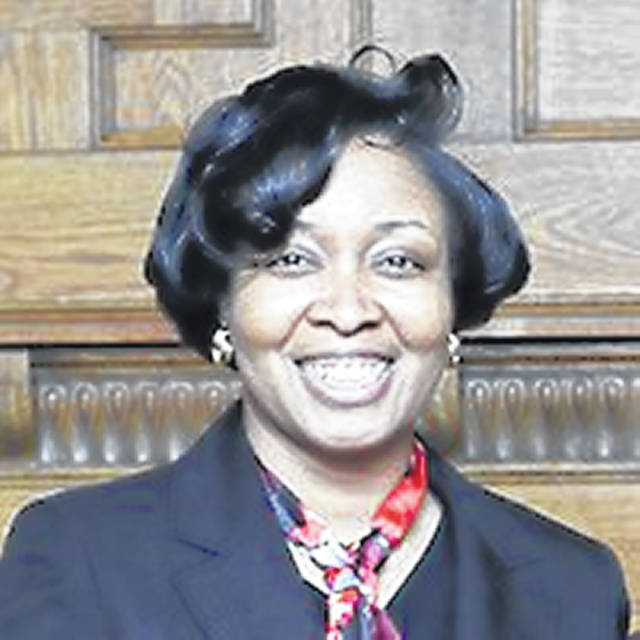This year, Aug. 28 will mark the 60th anniversary of the March on Washington for Jobs and Freedom where Dr. Martin Luther King Jr. gave his eminent “I Have a Dream” speech. The large black-and-white signs carried by the marchers are dominant images that have always stood out to me. There was an array of bold messages being paraded around the National Mall that included “We Demand Voting Rights Now,” “End Segregated Rules in Public Schools” and “Civil Rights Plus Full Employment Equals Freedom.” When looking at the historic photos of other iconic leaders who spoke that day — John Lewis, Daisy Bates, A. Phillip Randolph, Roy Wilkins, Walter Reuther, Floyd McKissick and Whitney Young — it is powerfully clear that a mighty declaration was being made against the evils of racial hatred and discrimination that still hardened the hearts of many in our nation. Bates was the only woman who spoke on the March’s program as she gave the “Tribute to Negro Women Fighters for Freedom.” Myrlie Evers had previously been appointed for this task but could not attend.
An estimated 250,000 gathered around the Lincoln Memorial to hear King and the civil rights leaders who stepped to the podium to proclaim, as Lewis put it, that a social revolution was sweeping the country. The fight for freedom and equality was one with righteous demands that the movement was fully committed to seeing through, as King affirmed that America could not continue to default on its “promissory note insofar as her citizens of color are concerned.” We have made great strides towards fulfilling the core of the promissory note regarding job, educational and entrepreneurial opportunities. This is evident as data from the Economic Policy Institute shows that the overall poverty rate for African Americans decreased by more than 12% between 1968 and 2016. The gap in educational attainment between Blacks and Whites has also declined. In a recent interview with The Hill, Dedrick Asante-Muhammad, chief of Race, Wealth and Community for the National Community Reinvestment Coalition, explained that Whites now have 1.7 times “the four-year college attainment level of Blacks,” down from 2.4 in 1962. Yet, disparities still exist for Blacks in homeownership and wealth equity, areas that civil rights organizations will continue to address.
What made King’s remarks in “I Have a Dream” distinctive when confronting the years of racial discrimination that built up barriers of inequality is that he always reiterated everyone must work together to overcome them. King pointed out that “… many of our white brothers, as evidenced by their presence here today, have come to realize that their destiny is tied up with our destiny.” We are still quite far from embracing our interconnected destiny that King envisioned 60 years ago, and many Americans, as shown in a recent Pew Research Center survey, do not believe that racial equality will be achieved in their lifetime.
If King had lived to witness this year’s momentous “I Have a Dream” anniversary, he would have been 94, and I believe that if physically able he would have given us rousing words of admonishment as well as hope. He would have warned us that the sinful spirit of racism is still present and that we must continue “pray(ing) together” and “stand(ing) up for freedom together.” I also think King’s warning would have been a compelling statement to challenge us to look within our souls. Knowing that God sees what is genuinely in our hearts, King would have reminded us that when we are callous regarding the needs of our fellow citizens, the societal consequences, while significant, would be “small compared to the wounds we inflict on our soul(s) when we look the other way.”
Lastly, I believe that King would have had a prophetic revelation to share with us as he quoted part of Isaiah 40:5 in 1963, declaring that “the glory of the Lord shall be revealed, and all flesh shall see it together.” Although this text specifically points to the eventual coming of Christ, King using it to address the marchers revealed his hope of seeing God’s power and love heal the divisiveness of our nation. Faith was always the firm foundation of King’s dream, and he knew that we needed to exercise it in order to truly be free.
Dr. Jessica A. Johnson is a lecturer in the English department at The Ohio State University-Lima. Reach her at [email protected] or on Twitter @JjSmojc. Her opinion does not necessarily represent the views of The Lima News or its owner, AIM Media.







